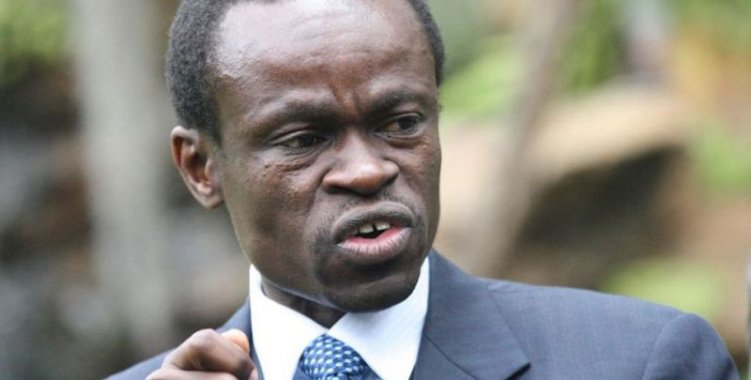"If we don't unite, if we don't act in a coordinated way China will be in Africa to stay, the UK will return, France will return, Portugal will return and, once again, we will be slaves in another way", he said.
A law professor and lawyer for the Supreme Courts of Kenya and Tanzania, Patrick Lumumba was speaking this Monday during a debate on creating conditions for development on the continent, organised by the African Union Development Agency (AUDA-NEPAD) to mark Africa Day.
Lumumba said that despite protests from Africans, "France continues to manipulate its former colonies," Portugal, "despite its poor state, thinks it can still control Angola and Mozambique," and the UK maintains "its manoeuvres" to control its colonised countries.
To these are added, according to Patrick Lumumba, "the new settlers" like China.
"The message we have to send is that pan-Africanism requires us to use our natural resources for our well-being," he said, listing several "failed" attempts at development on the continent, including the Millennium Development Goals.
For the academic and jurist, the path to Africa's development will necessarily have to be based on the silencing of weapons and the resolution of conflicts that still prevail on the continent.
"At this very moment, there are conflicts that continue in the Sahel region and that are not reported, there is destabilization starting in the north of Mozambique, there are the actions of Boko Haram and the violence that continues in the south of Cameroon", he pointed out.
"All these conflicts are going to stand in the way of the union of Africa and, beyond the speeches, we have to ask ourselves what we are really doing inside and outside the continent" to solve them, he stressed.
On the other hand, he questioned how countries are involving the millions of Africans abroad in the continent's development.
Patrick Lumumba stressed the critical need for African countries to collaborate and speak more firmly with one voice in the international arena and called on African leaders for "revolutionary measures" at a time when "there is no time to lose".
"Six hundred million young people have no jobs, economies are shrinking. In the name of pan-Africanism, we have to work together and we need to innovate", he argued.
As examples, he pointed to Madagascar's initiative to advance potential treatment for covid-19 (CovidOrganics) and the production of rapid tests for the new coronavirus in Senegal.
"It may be at the beginning, but this is the kind of boldness we need. This innovation will be very important in the future," he said.
Africa this Monday marks 57 years since the creation of the Organisation of African Unity (OAU).
In May 1963, as the struggle for independence from colonial rule gained momentum, leaders of independent African states and representatives of liberation movements gathered in Addis Ababa, Ethiopia, to form a united front in the struggle for the full independence of the continent.
From the meeting came the letter that would create Africa's first post-independence continental institution, the OAU, predecessor of the current African Union.
The OAU, which advocated a united Africa, free and responsible for its own destiny, was established on May 25, 1963, which would also be declared Africa Day.
In 2002, the OAU was replaced by the African Union, which reaffirmed the objectives of "an integrated, prosperous and peaceful Africa, driven by its citizens and representing a dynamic force on the world stage".







